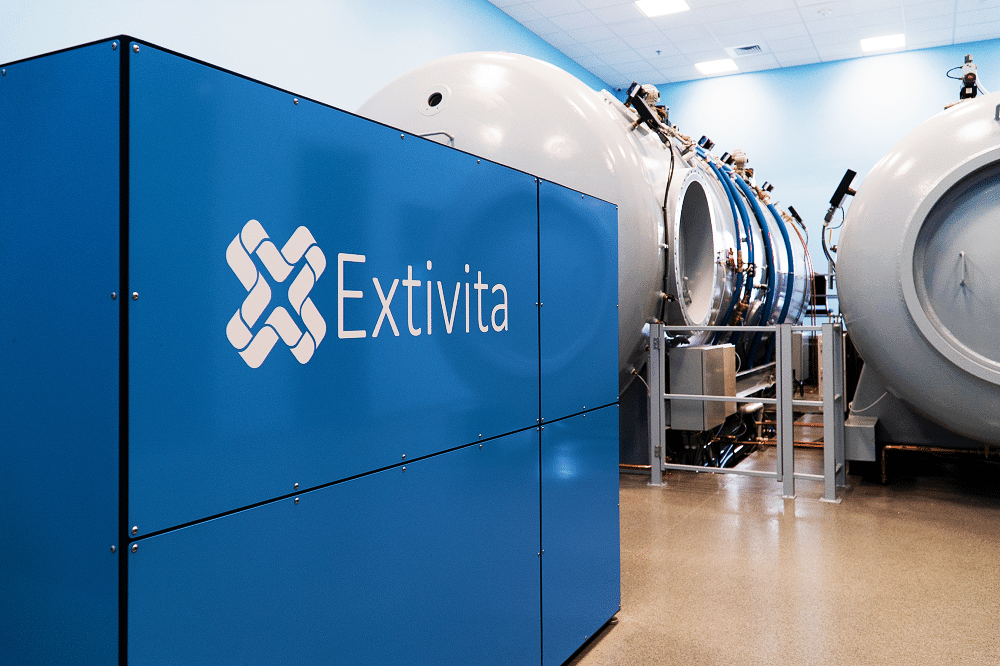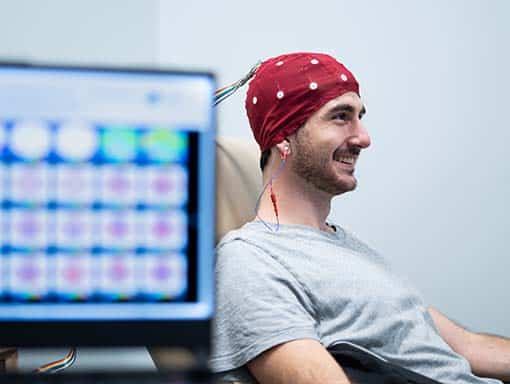Multiple Sclerosis
Multiple Sclerosis (MS) Is a complex neurodegenerative disease that is currently incurable. The disease can cause problems with balance, muscle control, vision and other basic bodily functions. MS is thought to be an inflammatory autoimmune disease in which the body attacks myelin, a critical component of the nervous system. Myelin forms fatty sheaths around nerves, which protects your nerves and facilitates rapid transmission of information throughout your brain. When this myelin is damaged in MS, it can cause mild to significant physical disabilities(1). The hallmark of MS is symptomatic episodes that occur months or years apart (relapses) followed by times of recovery (remission).
Current approaches to treatment include: 1) prevention of disease progression and reduction in relapse rate 2) treatment of acute exacerbations and 3) treatment of chronic symptoms. FDA approved treatments target neuroinflammation by modulating the immune system but not without significant risks(2). Despite new treatments and technologies, therapies to control inflammation and physical symptoms remain ineffective(2).
Extivita Therapies for Multiple Sclerosis:
Extivita Therapies for Multiple Sclerosis Recovery:

Hyperbaric Oxygen Therapy

Neurofeedback

Supplements

Nutritional IV Therapy

Pulsed Electromagnetic Field Therapy
Listen to Sofia’s experience with Hyperbaric Oxygen Therapy to treat Multiple Sclerosis
Hyperbaric Oxygen Therapy for Multiple Sclerosis:

Despite these studies, HBOT is still the mainstay treatment for MS in the United Kingdom as it has shown great potential in decreasing neuroinflammation(2).
HBOT Benefits for MS:
- Modifies Progression of Disease
- Reduces Relapse Rate
- May Restore Acute Blood Brain Barrier Disruption
- Improves Bladder Function
- Increases Energy
Effects of HBOT on Multiple Sclerosis:

Decreased Inflammation

Increased Stem Cell Activity
Hyperbaric oxygen therapy mobilizes stem progenitor cells (SPCs) from the bone marrow, creating the opportunity for tissue regeneration.

New Blood Vessel Formation
Hyperbaric oxygen therapy stimulates the formation of new blood vessels, healing injured tissues that were unable to get nutrients and oxygen.

Neurofeedback for Multiple Sclerosis:
Multiple sclerosis (MS) affects every individual differently, but research has revealed that a significant percentage of people with MS experience mental health issues in addition to physical impairment. The most common issues are fatigue, depression, and cognitive impairment all of which can have a negative impact on a person’s quality of life(3). Research has shown that using neurofeedback (NF) to reduce the activity of theta and alpha brain waves and increase the activity of beta brain waves effectively reduces ratings of depression and fatigue in people with MS. The NF training is done at the left frontal lobe, and the improvements in depression and fatigue have been shown to persist 2 months after NF training is completed(4). This suggests that NF has the potential to alleviate depression and fatigue in individuals with MS, thus providing these individuals with a higher quality of life.
IV Therapy for Multiple Sclerosis:
Ascorbic acid, or Vitamin C, is a vital antioxidant and a co- factor for biological processes in the body. The highest concentrations of Vitamin C are found in brain tissues and plays a significant role in neuroprotection(5). Clinical studies suggest that neurological diseases are associated with increased free radical generation and subsequent inflammation. Ascorbic acid levels in individuals with MS are significantly lower compared to patients without MS. Because studies have shown that oxidative stress and mitochondrial dysfunction contribute to neurological decline, Vitamin C can play a significant role in alleviating progression via pathological mechanisms implicated in MS(6). Extivita offers IV Vitamin C via Myers cocktail, which significantly increases serum levels of ascorbic acid compared to oral or liposomal supplementation.
How IV Vitamin C Can Help:
- Neutralize free radicals/decrease oxidative stress
- Modulate immune system by reducing protein aggregates, improving cognitive/ motor impairments
- Collagen synthesis to promote myelin sheath formation


Pulsed Electromagnetic Field Therapy for Multiple Sclerosis:
By improving local blood flow, oxygen supply and nutrition can be delivered to depleted tissues which can lead to decrease inflammation. Study participants have reported significant changes in fatigue level, bladder control, cognitive, mobility, spasticity and vision(7).
News & Research for Multiple Sclerosis:
Mechanism of lysine oxidation in human lens crystallins during aging and in diabetes.
Oxidative mechanisms during nuclear sclerosis of the lens are poorly understood, in particular metal-catalyzed oxidation. The lysyl oxidation product adipic semialdehyde (allysine, ALL) and its oxidized end-product 2-aminoadipic acid (2-AAA) were determined as a function of age and presence of diabetes. Surprisingly, whereas both ALL and 2-AAA increased with age and strongly correlated with cataract grade and protein absorbance at 350 nm, only ALL formation but not 2-AAA was increased by diabetes. To clarify the mechanism of oxidation, rabbit lenses were treated with hyperbaric oxygen (HBO) for 48 h, and proteins were analyzed by gas and liquid chromatography mass spectrometry for ALL, 2-AAA, and multiple glycation products. Upon exposure to HBO, rabbit lenses were swollen, and nuclei were yellow. Protein-bound ALL increased 8-fold in the nuclear protein fractions versus controls. A dramatic increase in methyl-glyoxal hydroimidazolone and carboxyethyl-lysine but no increase of 2-AAA occurred, suggesting more drastic conditions are needed to oxidize ALL into 2-AAA. Indeed the latter formed only upon depletion of glutathione and was catalyzed by H(2)O(2).
Effect of BEMER magnetic field therapy on the level of fatigue in patients with multiple sclerosis: a randomized, double-blind controlled trial
Abstract Objectives: Electromagnetic field therapy has been reported to be beneficial in patients with multiple sclerosis (MS) with significant fatigue. This study was designed to evaluate the long-term effects of Bio-Electro-Magnetic-Energy-Regulation (BEMER) on...
Hyperbaric oxygenation in fluid microembolism.
Because clinicians require objectively demonstrable neurological deficits to confirm a diagnosis, the recognition of embolic events in the nervous system is generally restricted to the effects of ischemic necrosis produced by arterial occlusion. However, magnetic resonance imaging (MRI) has shown that lesser degrees of damage associated with small emboli are common, especially in the mid brain, and are usually clinically silent. They are frequently associated with atheromatous embolism in the elderly, but microembolic debris, such as fat, is common in the systemic venous return of healthy people and generally trapped in the microcirculation of the lung being removed by phagocytosis. However, pulmonary filtration may fail and microemboli may also pass through an atrial septal defect in so-called ‘paradoxical’ embolism. Studies of bubbles formed on decompression in diving have demonstrated the importance of pulmonary filtration in the protection of the nervous system and that filtration is size dependant, as small bubbles may escape entrapment. Fluid and even small solid emboli, arresting in or passing through the cerebral circulation, do not cause infarction, but disturb the blood-brain barrier inducing what has been termed the ‘perivenous syndrome’.
References
- Bennett, M. and Heard, R. (2010). Hyperbaric Oxygen Therapy for Multiple Sclerosis. CNS Neuroscience & Therapeutics, 16: 115-124. doi:10.1111/j.1755-5949.2009.00129.x
- Perrins, D. and James, P (2005). Long-term hyperbaric oxygenation retards progression in multiple sclerosis patients. IJNN ; 2 (1): 45 – 48
- Siegert, R. J., and D. A. Abernethy. “Depression in Multiple Sclerosis: A Review.” Journal of Neurology, Neurosurgery & Psychiatry, vol. 76, no. 4, BMJ Publishing Group Ltd, Apr. 2005, pp. 469–75. jnnp.bmj.com, doi:10.1136/jnnp.2004.054635.
- Choobforoushzadeh, Azadeh, et al. “Effect of Neurofeedback Training on Depression and Fatigue in Patients with Multiple Sclerosis.” Applied Psychophysiology and Biofeedback, vol. 40, no. 1, Mar. 2015, pp. 1–8. PubMed, doi:10.1007/s10484-014-9267-4
- Kocot, Joanna et al. “Does Vitamin C Influence Neurodegenerative Diseases and Psychiatric Disorders?.” Nutrients vol. 9,7 659. 27 Jun. 2017, doi:10.3390/nu9070659
- Moretti, Morgana et al. “Preventive and therapeutic potential of ascorbic acid in neurodegenerative diseases.” CNS neuroscience & therapeutics vol. 23,12 (2017): 921-929. doi:10.1111/cns.12767
- Piatkowski, Joachim & Kern, Simone & Ziemssen, Tjalf. (2009). Effect of BEMER Magnetic Field Therapy on the Level of Fatigue in Patients with Multiple Sclerosis: A Randomized, Double-Blind Controlled Trial. Journal of alternative and complementary medicine (New York, N.Y.). 15. 507-11. 10.1089/acm.2008.0501.



